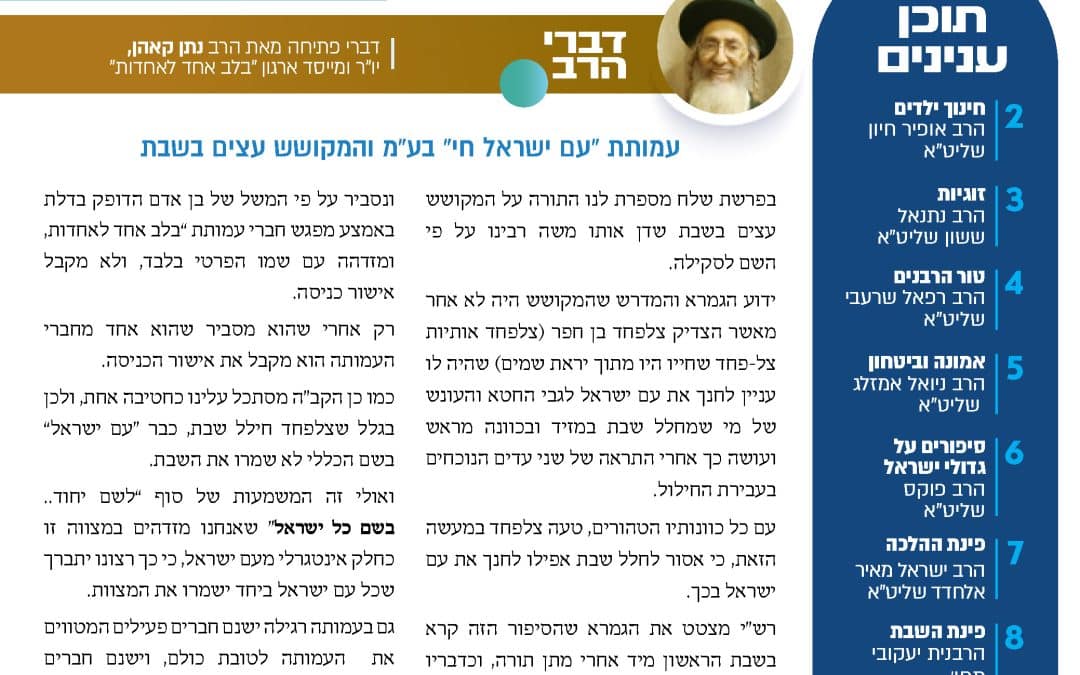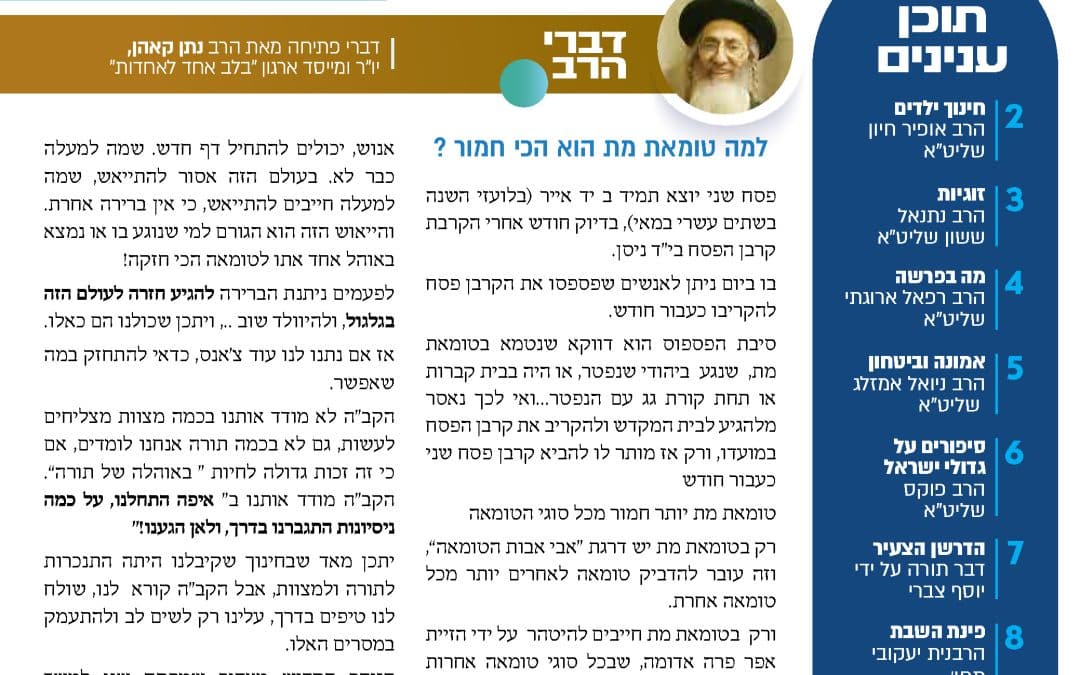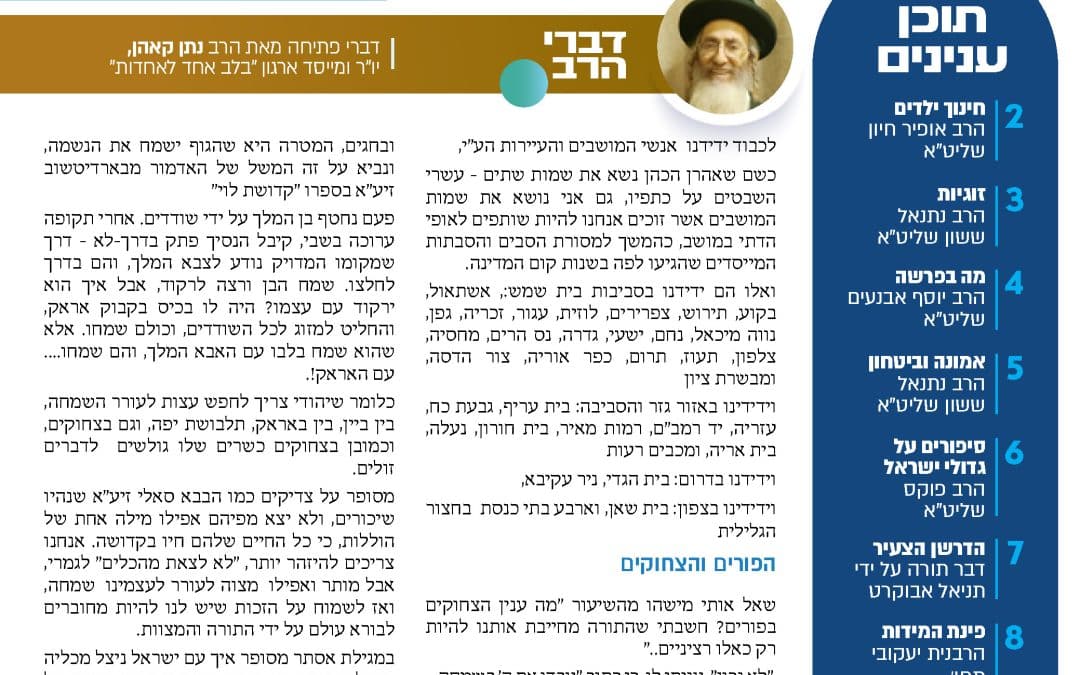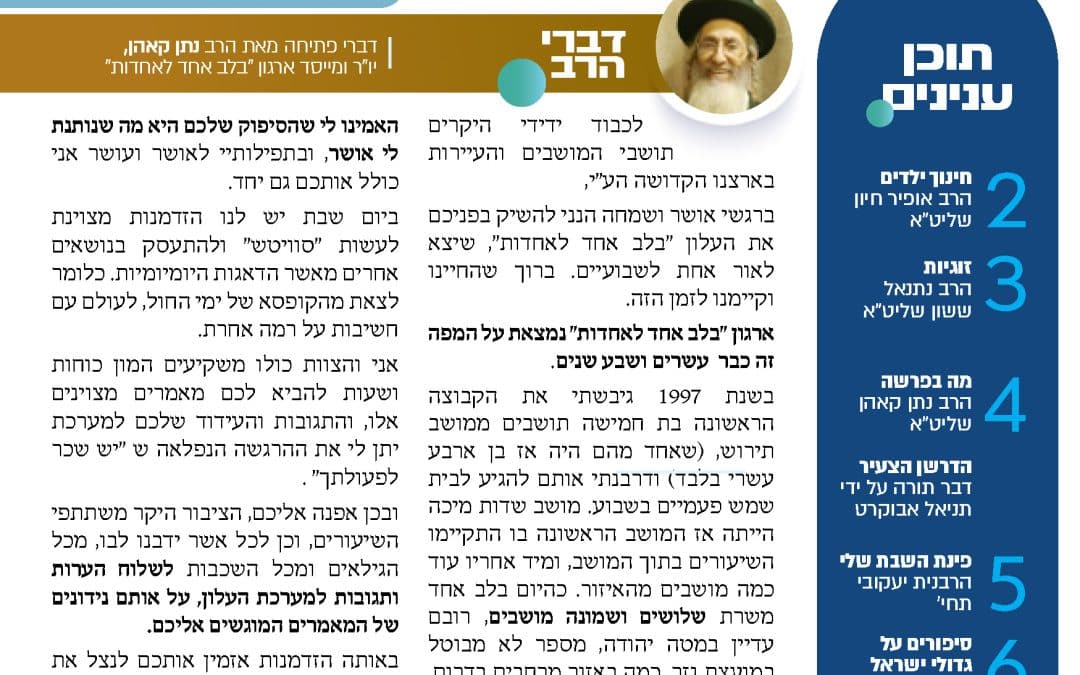It is known that the most important commodity during our lives is our fellow human beings. Anything we want to do in life – to influence, build and achieve, we will always do it with other people and never alone. Studies in the field of emotional intelligence indicate that one of the most significant barriers to success in life – in marital relationships, is healthy relationships. Anyone who has been truly successful over time has succeeded thanks to his ability to connect with others. Thus, the ability to build and maintain good relationships is a fundamental skill that every person striving for success must cultivate.
In this column, we will be exposed to one of the most powerful exercises there is. This is a surprising exercise, which has repeatedly aroused astonishment at all levels of the public. Thousands of testimonies tell of how he managed to dramatically influence relationships – with children, spouses, students, parents, teachers, and even judges and police officers. There are many stories of extraordinary successes thanks to him – people who turned from adversaries to closers, children who changed without a word of conversation, and frozen relationships that suddenly melted. The root of the exercise is taken from the words of the wise man – King Solomon: “Like water, the face is to the face, so is the heart of man to man” (Mishlei 27:19). The idea in the verse is that just as heaven reflects our faces, so do people’s hearts reflect our intentions toward them.
The Gaon of Vilna explains: If a person looks at the water with a crooked face, the water will reflect him in this way. If we feel good feelings for another person in our hearts, his heart, even without him realizing it, will feel it, and the same feelings will develop in his heart. The Ohr Hachaim likewise explains: Hearts connect to each other in an inner and hidden dimension, and if we develop love in our hearts for another person, his heart will also feel and awaken to love us.
But a practical question arises: How can we develop such feelings in our hearts, especially towards those who are difficult for us? This is where a basic understanding comes in: thought creates emotion. The more we repeatedly think positive thoughts about a particular person, the more positive feelings will arise in our hearts toward them. And what is within us will also appear in the heart of the other. Let’s take this stage by stage.
Stage one of the exercise: Gratitude – writing or thinking about the favors we have received from this person over the years.
Stage two: Identifying good qualities – a conscious view of positive points in his nature.
Stage three: Advocacy and judgment on the side of merit – a positive interpretation of actions that seemed negative to us. An attempt to understand the difficulties or background that caused him to behave this way. Many stories describe successes following this exercise.
A woman whose husband delayed her divorce for 30 years succeeded, without any direct conversation or contact, received a call from abroad ,deeply regretting his behavior and propose her divorce– after only 30 days of positive thoughts.
Even prisoners who performed the exercise on the judges who sentenced them received surprising leniency in their sentences.
An amazing story about a transformation in her relationship, Dalia (pseudonym) felt that her husband, Yossi, was distancing himself from her. He became short-tempered, less communicative, and more withdrawn. Attempts to talk led to a fight, and she felt desperate. Instead of continuing to struggle, she decided to try the exercise for 30 days, without sharing it with her husband.
Stage 1: Gratitude Dalia sat down with herself and wrote down every day 3 favors she received from Yossi over the years – big and small: How in the beginning he would cook for her when she was tired, how he worked hard to support her when she was studying, how he supported her when she lost a relative, even though it was difficult – she was looking for good memories.
Step 2: Finding Good Traits Dalia focused on Yossi’s positive qualities: his matter-of-fact vision, his sense of humor, the fact that he is loyal and homely.
Stage 3: Defense and Judgment on the Scale of Merit. Dalia began to discuss his behavior in her heart – maybe Yossi was stressed out at work… Maybe he has a sense of failure that he can’t make happy… Maybe he’s just dealing with emotional fatigue that he doesn’t know how to express…
… She didn’t argue with him, she didn’t demand, she didn’t pressure—she just did the inner work.
Result: After three weeks, Dalia notices that suddenly Yossi offers her to go out together, talking more, even smiling more. He himself didn’t understand what had changed—but she felt it clearly. Her heart had changed – and so had his. This is the power of the heart. When we think well, we transmit good. And when we transmit goodness, the other person’s heart responds accordingly.









